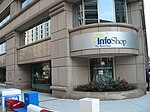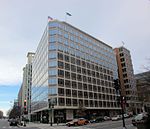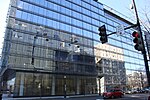American Action Network
2009 establishments in Washington, D.C.501(c)(4) nonprofit organizationsAC with 0 elementsConservative organizations in the United StatesNon-profit organizations based in Washington, D.C. ... and 2 more
Political and economic think tanks in the United StatesThink tanks based in Washington, D.C.
The American Action Network (AAN) is a nonprofit, conservative issue advocacy group based in Washington, D.C., aligned to the Republican Party. It was established in 2010 by Fred Malek and Norm Coleman as a 501(c)(4) organization. The AAN's sister organization, the American Action Forum, is a 501(c)(3) non-profit organization focusing on policy research. The American Action Forum is run by former Congressional Budget Office director Doug Holtz-Eakin. AAN officials also run the Congressional Leadership Fund, a super PAC (independent expenditure PAC) focused on electing a House Republican majority.
Excerpt from the Wikipedia article American Action Network (License: CC BY-SA 3.0, Authors).American Action Network
Pennsylvania Avenue Northwest, Washington
Geographical coordinates (GPS) Address Nearby Places Show on map
Geographical coordinates (GPS)
| Latitude | Longitude |
|---|---|
| N 38.899611111111 ° | E -77.040944444444 ° |
Address
Roti
Pennsylvania Avenue Northwest 1747
20006 Washington
District of Columbia, United States
Open on Google Maps






